As a former imperial garden, Shinjuku Gyoen National Garden has developed as one of Japan’s Top 100 Cherry Blossom Viewing Spots nowadays, blending Japanese tradition, French formal gardens, and English landscapes. As one of the best Tokyo attractions, it also offers a serene escape from Tokyo’s bustle.
Situated in the former residence of Lord Naito, a feudal lord during the Edo era. When it came to 1906, the garden was turned into an imperial garden for the royal family. The park was destroyed during World War II, and it was restored and opened to the public in 1949.
Do not miss this must-see place in Tokyo. Witnessing its seasonal changes and seeking tranquility can be one of the best things during your time in Tokyo. Discover seasonal blooms, historical pavilions, and visitor tips for this iconic retreat. Plan and embark on your travel to Tokyo now!
Table of Contents
Shinjuku Gyoen National Garden Facts
Why Visit Shinjuku Gyoen National Garden?
Shinjuku Gyoen National Garden Must-See Zones
Shinjuku Gyoen Seasonal Highlights & Events
Shinjuku Gyoen Practical Guide
Nearby Attractions
FAQs about Shinjuku Gyoen Tokyo
Shinjuku Gyoen National Garden Facts
Japanese name: 新宿御苑
Address: 11 Naito-machi, Shinjuku-ku, Tokyo
Opening hours:
From October 1st to March 14th: 9:00 am-4:30 pm (4:00 pm for closing gate)
From March 15th to September 30th: 9:00 am-5:30 pm (6:00 pm for closing gate)
From July 1st to August 20th: 9:00 am-6:30 pm (7:00 pm for closing gate)Closed: Mondays; New Year’s Holiday (from December 29th to January 3rd)
Entrance ticket:
500 yen for adults (aged 65 and older)
250 for students (high school students and older)
Free for children (junior high school students and under 15)Suggested visit duration: 2-3 hours
Best time to visit: Spring and autumn
Why Visit Shinjuku Gyoen National Garden?
A 58.3-hectare (144 acres) oasis of imperial history and natural beauty
Three distinct garden styles: Japanese, French, and English
Top cherry blossom spot in Tokyo with 70+ cherry tree varieties
Japan’s Top 100 Cherry Blossom Viewing Spots
A greenhouse with a wide range of rare plants from Japan and the world
Shinjuku Gyoen National Garden Must-See Zones
Traditional Japanese Garden
The oldest of three gardens in Shinjuku Gyoen belongs to the Japanese Landscape Garden, characterized by large ponds together with bridges and islands. The pond is surrounded by some brushwood and trees. A 17th-century teahouse and some pavilions are also built around the pond. Take a stroll on the pond paths while appreciating the beauty. This Japanese garden can be one of the greatest places you cannot miss in your Shinjuku Gyoen tours.
French Formal Garden
The French Formal Garden is the most romantic of the three gardens. A wide range of tropical and subtropical flowers are planted in this geometric rose garden; therefore, it becomes a pretty popular place for viewing flowers bloom in spring. Autumn maple foliage in the garden is also a photography hotspot during autumn in Tokyo. Shooting at symmetry hedges can be photogenic.
English Landscape Garden
Featuring Expansive lawns with Tokyo skyline views, the English Landscape Garden is surrounded by cherry blossom trees. This structure allows tourists to admire the stunning views while having picnics on open lawns.
Mother and Child Woods
Mother and Child Woods is a rural woodland area, characterized by all kinds of trees, which provides children with a chance to get close to nature and feel its truth through observing and interacting with trees and birds. Venturing into the forest, like entering a unique and tranquil world, helps you escape from noise and chaos in the city.
Shinjuku Gyoen Seasonal Highlights & Events
Spring
Renowned as one of the most famous Hanami spots in Tokyo, the Shinjuku Gyoen cherry tree area turns into a splendid sea of flowers in spring, blended with white, pink, and red. About 900 cherry trees of 70 species reach their full bloom at this time, when petals dot every corner of the park. Viewing Shinjuku Gyoen cherry blossom during this period can be one of the best things to do in Tokyo.
Summer
When lush greenery covers the land, summer is closing, the time for the lotus. In this season, the garden in Shinjuku becomes a popular summer destination to escape from the heat and bustling city life, suitable for spending a tranquil and healing time. Wandering on the vast grassland and enjoying relaxing hours are perfect for replenishing energy.
Autumn
Autumn foliage is known for its marvelous scenery. As autumn nears, bright colors start to dye the garden and present a breathtaking painting. A colorful array of maple and sycamores brings an ultimate romance of autumn and provides many spots for photos. The natural beauty embraces the peak in mid-November, which is also the time of the Chrysanthemum Festival (Nov 1-15). Numerous locals and tourists are mesmerized by this breathtaking scenery every year.
Winter
People can also have an enjoyable time in winter, as plum blossoms bloom early during this period. The mild winter brings a snow-covered wonderland for every person coming here, which is a great chance to appreciate and record the snowscape.
Shinjuku Gyoen Practical Guide
Opening Hours
Date Operating Hours Closing Time Greenhouse Opening Hours October 1st-March 14th 9:00 am-4:00 pm 4:30 pm 9:30 am-3:30 pm March 15th-June 30th 9:00 am-5:30 pm 6:00 pm 9:30 am-5:00 pm July 1st-August 20th 9:00 am-6:30 pm 7:00 pm 9:30 am-6:00 pm
Note:
Shinjuku Gyoen Park will be open 24/7 during the period from March 25th to April 24th and from November 1st to 15th.
Shinjuku Gyoen Tickets
Type of Ticket Adults Seniors (aged above 65 and older) Students Children (Junior high school students/15 and below) General 500 yen 250 yen 250 yen Free Groups 400 yen/1 250 yen 250 yen Free
How to Get to Shinjuku Gyoen National Garden
Shinjuku Park is easily reachable; therefore, you don’t have to worry about how to get to Shinjuku Gyoen National Garden by metro. Tokyo Metro Marunouchi Line/local Chuo/Sobu Line/Keio/Odakyu Line are all accessible.
(1) A 10-minute walk from the New South Exit of JR Shinjuku Station to the Shinjuku Gate of Shinjuku Gyoen National Park.
(2) A 5-minute walk from the JR Sendagaya Station to the Sendagaya Gate of Shinjuku Gyoen National Garden.
(3) A 5-minute walk from Shinjuku Gyoenmae Station to Shinjuku Gate of Shinjuku Gyoen National Park.
Best Time to Visit
Shinjuku Gyoen National Park’s landscape seasonally varies so that tourists enjoy unique atmospheres throughout the year. But the most recommended seasons are spring and autumn.
During the period from late March to early April, come for the cherry blossom season in springtime. Mid-November and early December for vibrant foliage in fall. Avoid some national holidays to beat the crowds.
Accessibility & Facilities
A series of complete service facilities are equipped in Shinjuku Gyoen Park, with Wheelchair-friendly paths, rest areas, and nursing rooms. Free wheelchair rental services are available. Besides, 4 nursing rooms and 15 restrooms are set up, with Western toilets and diaper changing tables, which are suitable for family outings and friendly to wheelchair users.
Rules & Etiquette
Note that smoking, alcohol, or sports are not allowed in Shinjuku Gyoen Garden. Picnics are allowed only on lawns.
Do not enter with animals, except for assistance dogs.
Flying drones prohibited
No playing musical instruments
Commercial photography prohibited
Nearby Attractions
Meiji Jingu Gaien Ginkgo Avenue
Meiji Jingu Gaien Ginkgo Avenue, the outer garden of Meiji Shrine, is approximately 300 meters long. 146 ginkgo trees create a romantic picture and form a ravishing golden tunnel, leading to the Memorial Picture Gallery. This combination presents a picturesque masterpiece and becomes a hot photo spot in autumn, attracting numerous people.
Tokyo Toy Museum
With a wide range of toys, the Tokyo Toy Museum has 8 rooms, with different types of themes, for children of all ages. Toys and equipment here are mostly made from domestic wood, like 20,000 wooden balls. And there is a special exhibition, where you can enjoy a variety of toys from Japan and abroad. Visitors can make their own toys in the workshop, at the same time picking their preferred toys as souvenirs.
Shinjuku Golden Gai
Around 300 wooden bars and shops in retro styles nestle in the alley, where visitors can not only spend their leisure but also get a taste of Japanese culture. Staff and customers tend to be closeted; therefore, customers can even get a drink alone and enjoy this relaxing vibe. Featuring diverse themes of hubs, you can experience various moods via bar hopping.
Shinjuku Suehirotei
Shinjuku Suehirotei is also a place for enjoying traditional Japanese arts, like Rakugo storytelling and Manzai comedies. Moreover, people can enjoy magic, acrobatics, and other forms of performance without reservation. After visiting the performance, you can buy some gifts with typical Japanese styles.
FAQs about Shinjuku Gyoen Tokyo
1. Is Shinjuku Gyoen worth visiting?
Shinjuku Gyoen is definitely worth visiting, especially for first-time visitors. Not far from central Tokyo, it is viewed as an urban oasis to relax.
2. How long to spend at Shinjuku Gyoen National Garden?
2 or 3 hours will be enough to take a stroll in the garden and view its highlights.
3. What time does the Shinjuku Gyoen Garden open?
Shinjuku Gyoen National Park opens at 9:00 am and closes at 4:30 pm, which varies by different months. Check the Shinjuku Gyoen official website for more details.
Plan Your Tokyo Trip with Hi Five Trip
When tired of bustling city life, Shinjuku Gyoen National Garden provides a wonderful escape for you to temporarily distance yourself from reality to take a fresh breath. Here are our top-selling Tokyo tours covering Shinjuku Gyoen:
Feel free to contact us and give your creativity to customize a personalized Japan itinerary with the assistance of our travel consultant.

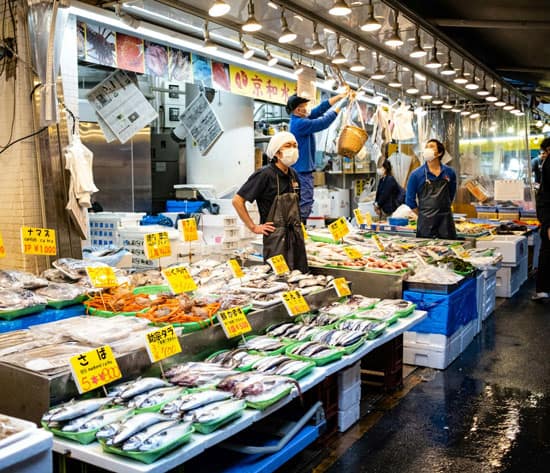
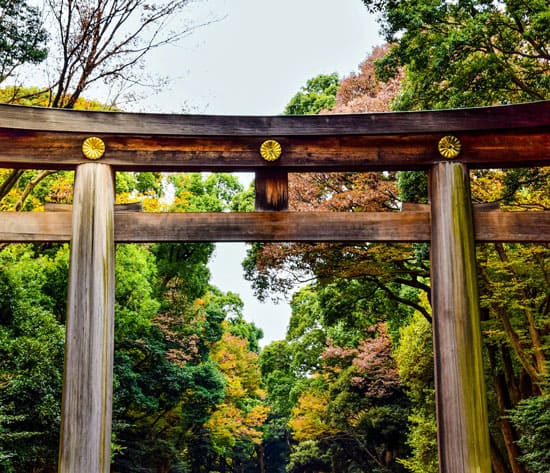


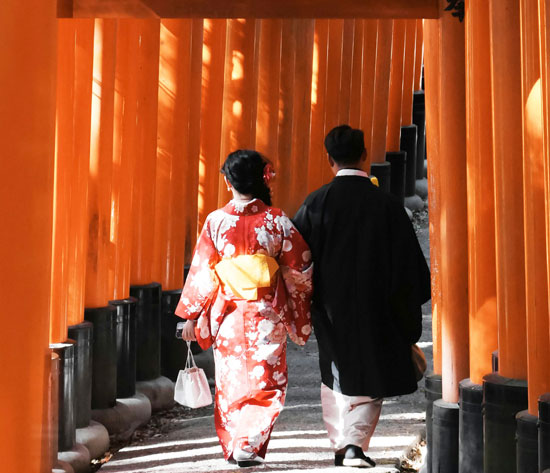
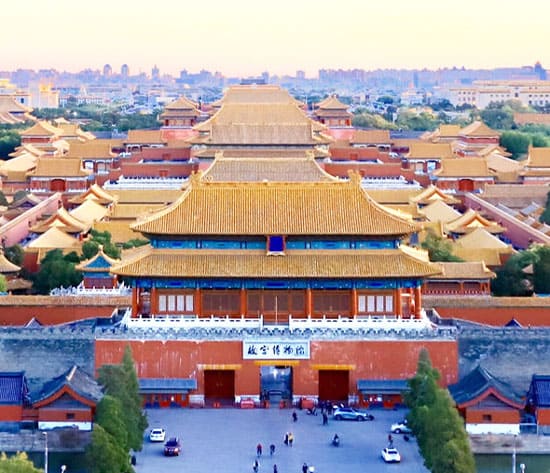

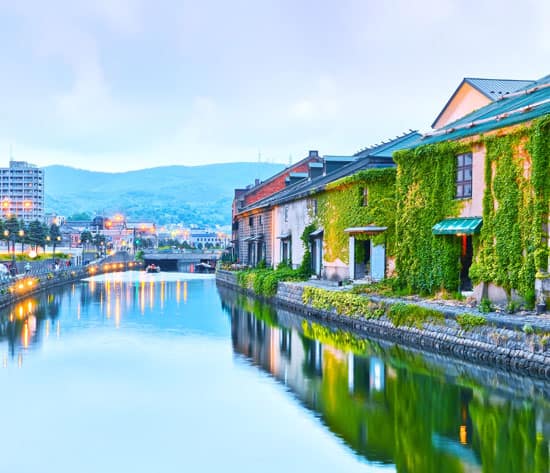
Have a Question?
You might see your comment appear on this page, but your email address and full name will not be published. Your personal information will remain confidential. Our Asia travel experts will get back to you as soon as possible. Required fields are marked *